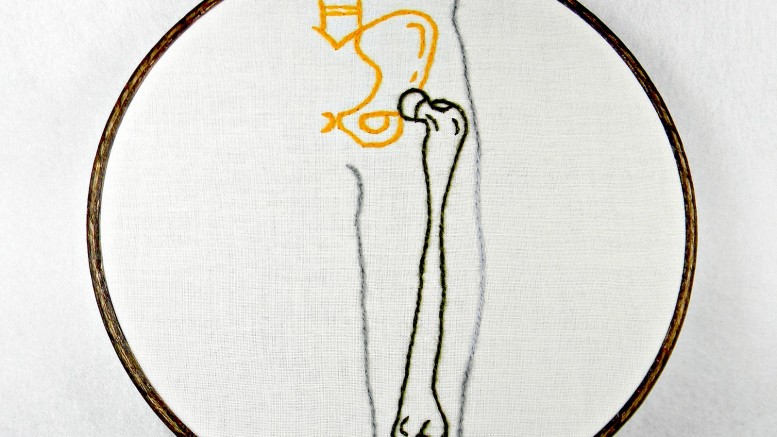Aging is a natural part of the process of life, and one that we all must accept, but it isn’t always easy to deal with. As we get older, parts of our bodies don’t quite work as well as they used to, with new aches and pains emerging that we’ve never noticed before and once trusty joints and muscles starting to let us down.
One of the most common issues among people entering middle and old age is hip pain. The hip joint puts up with a lot over the years, and it’s no surprise that over 14% of people aged 60+ report experiencing severe hip pain on a daily basis, with a much larger percentage experiencing moderate hip pain regularly too.
There are plenty of ways you can be kind to your hip joint and help to extend its lifespan, from doing more yoga and exercise to keeping your weight under control, but even with these efforts, there’s always a risk that, as you get older, the joint will begin to suffer the wear and tear of the years. Read on to learn about the key causes of hip pain, as well as some possible treatment methods to consider.
Causes
There are many potential causes of hip pain, and here some of the most common:
- Arthritis – Arthritis is by far one of the most common causes of hip pain. This condition directly affects the bones throughout the skeleton, leading to weakness, fragility, and pain, and it’s very commonly noticed in the hips, in particular.
- Tendinitis – Tendons are what allow our joints to move; they’re small pieces of tissue that connect bones to muscles, but they can suffer damage and deterioration as time goes by too. Tendinitis is a common condition in which tendons become inflamed and very painful.
- Repetitive Injuries – One of the common issues affected the hip, as well as other joints, is injuries caused by repeated motions. If you keep moving a joint the same way, again and again, it can eventually start to wear down. Exercise can help with this.
- Physical Injuries – Other injuries, caused by things like bumps and falls, can also lead to hip pain too. It’s not uncommon for elderly people to suffer a fall and then find themselves dealing with hip pain as part of their joint may have gotten fractured or knocked out of position.
- Cancer – Unfortunately, one of the most distressing causes of hip pain can be cancer. Bones, like other parts of the body, can all be affected by this terrible disease, leading to tumors actually building up inside the joint bones themselves.
- Bursitis – Bursae are small pockets of liquid found around bones and muscles, serving as a kind of natural lubricant to help your joints move more smoothly. Over time, they can get inflamed and irritated, causing unwanted aches and pains in a condition known as bursitis.
Treatments
Fortunately, you don’t have to simply suffer with hip pain, and there are quite a few ways to deal with it and alleviate some of the aches.
- Medication – Of course, as with other aches and pains throughout the body, one of the most common methods for dealing with hip pain is simply for a doctor to prescribe some pain-killing medication. Strong painkillers and anti-inflammatory pills can massively help to soothe an aching hip, and other medications may be used in cases where cancer or other illnesses are to blame.
- Surgery – If the situation is quite severe, surgical options for treating hip pain may be explored. Potential operations may include a full hip replacement or a partial hip replacement, with damaged or diseased parts of the joint being removed and replaced with artificial replacements. Although the surgery itself is usually successful, the post surgery recovery process can be difficult and often takes several months. There are a few things that patients can do to help ensure a successful recovery, including following their physical therapy regimen, moving around as much as possible, and avoiding activities that put too much strain on the new hip.
- Lifestyle – For a simpler and more natural way to help with hip pain, there are some simple lifestyle alterations you can make too. You might be able to incorporate more exercise into your daily routine, for instance, to stretch and strengthen the joint, as well as focusing on the diet to lose a little weight and put less pressure on the bones.
Conclusion
It’s quite likely that you will experience hip pain as you get older, but it’s important to know that there are many potential causes and a lot of possible solutions to this pain too, so don’t suffer in silence. See a specialist as soon as possible to get the medical care you need.
